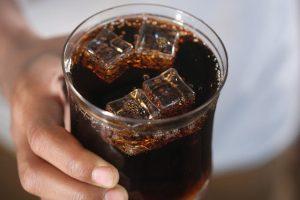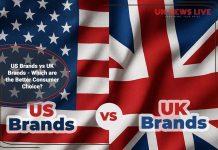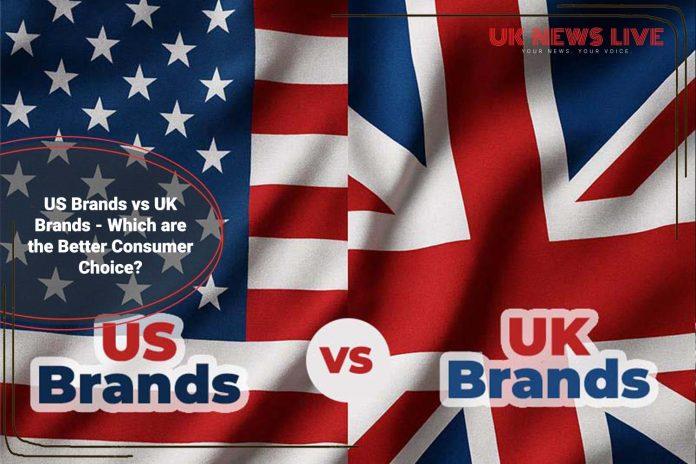In today’s cost- and eco-conscious climate, British consumers are rethinking their loyalties. While American brands continue to hold sway in sectors like food, fashion, and tech, there’s growing momentum behind buying British — and not just since the trade war has been kicked off.
Recent trends show that UK-made products are gaining favour, especially among shoppers who value quality, sustainability, and economic resilience. Recent research from Make it British conducted in 2022 found that 88% of UK consumers said they would be willing to pay more for a product if it was made in the UK, with a third of those willing to spend up to 20% more. This highlights a significant consumer appetite for supporting domestic production.
If you’re looking to cut costs without compromising on quality or lifestyle, here’s a smart guide to swapping some of the UK’s most popular American brands for equally strong British alternatives. For even more savvy savings, check out top coupon sites in the UK and start stacking up those deals.
Disclaimer: The information shared in this post was correct at the time of publication, but may be subject to change.
US Brands vs UK Brands: Swap & Save Smartly
With trade tensions highlighting the fragility of global supply chains, now is the ideal time for UK consumers to rethink their brand loyalties. While the latest US tariffs target UK exports, they underscore a broader trend of international uncertainty that’s reshaping how and where we shop. From fashion and tech to coffee and chocolate, many homegrown brands now offer comparable, or even superior quality, often at lower prices and with added ethical or environmental credentials. Choosing UK alternatives isn’t just a show of support for local businesses, it’s a smart, future-focused decision.
This side-by-side guide compares leading US products with standout UK options, factoring in expected tariff hikes for 2025 so you can see exactly where you could save by shopping British.
| American Brands | UK Alternatives | Reason to Switch |
| Starbucks | Pret A Manger | Lower cost for quality organic coffee, locally sourced and widely available. |
| Apple | Nothing Phone 2 | Comparable performance for over £150 less; designed in London with modern appeal. |
| Nike | Gymshark | A sustainable fitness brand with stylish, affordable activewear and local stores. |
| Amazon Basics | Wilko | Cheaper alternative with better in-store support and warranty on essentials. |
| Levi’s | Marks & Spencer | Quality denim with a trusted British heritage at a fraction of the price. |
| Kellogg’s | Weetabix | Lower food miles and transparent UK-based sourcing for breakfast staples. |
| Hershey’s | Cadbury | Cadbury products sold in the UK are largely manufactured domestically, with key facilities in Bournville, Birmingham, reducing the carbon footprint associated with long-distance transportation. |
| McDonald’s | Greggs | British-made meals using local ingredients at a better value. |
| Uber Eats | Deliveroo | More affordable delivery, improved customer support, stronger partnerships with local restaurants, and UK-based staff at its headquarters. |
| Coca-Cola | Cawston Press | Made with only locally sourced fresh ingredients, no added sugar, and real pressed fruit – nothing artificial. |
1. Coffee:

Starbucks (US Coffee Chain)
Starbucks remains a staple across UK high streets, with a Tall Latte averaging £3.88. While its global footprint and brand power remain strong, the pricing reflects imported ingredients, franchising costs, and premium positioning.
Pret A Manger (British High-Street Favourite)
Pret has reduced the price of its 100% organic Arabica filter coffee to 99p, down from £1.80. This makes Pret a cost-effective option for coffee enthusiasts seeking quality brews at a lower price point, or even inspiration for brewing at home with this beginner’s guide to bean-to-cup coffee machines.
2. Smartphone:

Apple (US Tech Giant)
Apple remains a go-to for premium tech, with the iPhone 15 (128GB) priced at £699. While undeniably sleek and powerful, Apple’s high price point can make upgrades a significant investment, especially for consumers exploring more budget-conscious choices.
Nothing Phone (British Tech Disruptor)
British-designed Nothing Phone 2, created in London, retails at just £629 with comparable performance and no import duties, offering a sleek alternative and savings of over £70.
3. Sportswear

Nike (US Sportswear Icon)
Nike‘s Nike Tour Repel golf jogger is priced at around £84.99 in the UK. However, the high price of this brand makes UK alternatives more appealing for those seeking quality and value without paying a premium for the logo.
Gymshark (British Fitness Brand)
UK-based fitness wear brand Gymshark offers high-performance joggers from £28, maintaining local production and offering serious value for money.
4. HDMI Cable:

Amazon Basics (US Budget Brand)
Amazon Basics is known for functional, no-frills essentials like HDMI cables, typically priced at £5.57. Buyers may face inconsistent product quality and limited customer service, especially for budget items.
Wilko (UK Retail Staple)
UK retailer Wilko sells a similar cable for just £2.49, often with better in-store support and returns policies—perfect for budget-conscious tech users.
5. Jeans:

Levi’s (US Denim Legend)
Levi’s 501 Original Fit jeans are iconic but come with a price tag of about £90 in the UK. Known for their fit and heritage status, they remain a sought-after import but may not suit every budget.
Marks & Spencer (British Heritage Brand)
M&S offers premium straight-leg jeans for £45, combining comfort with British heritage and trusted customer service.
6. Cereal:

Kellogg’s (US Breakfast Brand)
Kellogg’s Crunchy Nut cereal (400g) remains a family favourite on UK breakfast tables, retailing at around £4.40. As a multinational product, it often travels longer distances and may contain higher sugar content than UK-made cereals, making it less appealing for health-conscious shoppers seeking locally produced options.
Weetabix (UK Pantry Staple)
Home-grown favourite Weetabix, made in Northamptonshire, retails at £3.50 and boasts lower food miles and more transparent sourcing.
7. Chocolate:

Hershey’s (US Chocolate Brand)
Hershey’s Cookie ‘N’ Cream White Chocolate Bar (90g), imported from the US, sells for around £1.48. Though recognised for their nostalgic American flavour, many UK consumers find them overly sweet or lacking creaminess compared to European alternatives.
Cadbury (British Favourite)
British icon Cadbury Dairy Milk, widely considered superior in taste, is just £1.15, with local sourcing and sustainability practices in place.
8. Fast Food:

McDonald’s (US Fast Food Giant)
A McDonald’s Mac Minecraft Movie Meal in the UK costs around £8.49. While consistent in flavour and globally familiar, it relies heavily on imported branding and supply chains that some consumers now question in favour of local options.
Greggs (UK Bakery Chain)
A Greggs meal deal (such as a sandwich, drink, and snack) is just £3.95, proudly made in Britain with regional suppliers.
9. Food Delivery:

Uber Eats (US Delivery App)
Uber Eats dominates the food delivery space but charges average service and delivery fees of about £2.99. As a global company, it sometimes lacks the personal touch or localised service that consumers expect.
Deliveroo (UK Food Delivery Platform)
UK-born Deliveroo averages £2.49 for delivery, offering local customer support and wider local restaurant reach.
10. Soft Drinks:

Coca-Cola (US Beverage Giant)
Coca-Cola remains a leading soft drink choice, with a 1.75 L bottle typically costing £2.25. Though widely stocked, it’s produced under global supply chains, and some consumers are looking for more localised, healthier options.
Cawston Press (UK Drinks Brand)
Cawston Press, a British sparkling drink brand, retails at £1.45 for a 330ml can and uses UK-sourced ingredients with no added sugar.
Summary Chart: Average Savings per Product
| Category | Avg. US Brand Price | Avg. UK Brand Price | Est. Saving |
| Coffee | £3.88 | £1.80 | £2.08 |
| Smart Phone | £699.00 | £629.00 | £70.00 |
| Sportswear | £84.99 | £28.00 | £56.99 |
| HDMI Cable | £5.57 | £2.49 | £3.08 |
| Jeans | £90.00 | £45.00 | £45.00 |
| Cereal | £4.40 | £3.50 | £0.90 |
| Chocolate | £1.48 | £1.15 | £0.33 |
| Fast Food | £8.49 | £3.95 | £4.54 |
| Food Delivery | £2.99 | £2.49 | £0.50 |
| Soft Drink | £2.25 | £1.45 | £0.80 |
Navigating Tariffs & Backing British Brands: A Smart Move
The Tariff Impact: Why UK Brands Matter
Trade tensions are making headlines, with the US recently imposing a 10% tariff on certain UK imports. While these measures primarily affect UK exporters, they signal growing instability in global supply chains—something UK consumers are increasingly mindful of.
For those looking to reduce reliance on US imports—whether for economic or ethical reasons—switching to home-grown alternatives makes financial sense. UK brands often provide comparable quality at lower prices, minus the branding premiums or complex supply chains. Supporting local businesses not only helps consumers save but also strengthens the domestic economy during uncertain global times.
This shift isn’t just driven by patriotism — it’s a practical move in light of global supply chain disruptions and new tariff policies. With rising costs linked to overseas trade, UK shoppers are seeking local alternatives not just as a preference but as a necessity.
Why Choose UK Brands? A Solid Bet
Firstly, it’s a cracking way to support the UK economy, keeping jobs local and businesses thriving. Secondly, buying closer to home often means a smaller carbon footprint. UK-made products generally boast higher quality and safety, and you’re supporting fairer work, too. Choosing British also makes us less reliant on shaky global trade and helps keep our traditions and innovation going strong. It’s a sensible choice all around.
Switching to British brands isn’t just patriotic — it’s strategic. Here’s why:
- Protects your wallet from rising import fees or currency shocks
- Supports local industries and safeguards British jobs
- Ensures higher quality standards, thanks to tighter UK regulations
- Reduces reliance on unstable global trade routes
- Promotes self-sufficiency in key sectors
Final Thought: Smart Local Swaps, Smarter Spending
In a time when global prices are more volatile than ever, shifting spending habits towards UK-made alternatives isn’t just about national pride—it’s about everyday practicality. As tariffs begin to reshape the cost of living, British consumers have a genuine opportunity to rethink their go-to brands in favour of options that are not only competitively priced but also closer to home.
What this comparison shows is that quality, value, and reliability don’t have to come with an international markup. From tech and trainers to chocolate and cereal, many UK brands now match or even outperform their American counterparts in terms of cost, ethics, and convenience. With added transparency in sourcing and stronger consumer protections, choosing British produce increasingly aligns with long-term values rather than short-term compromise.
Looking ahead, being more selective with the brands we support is likely to become part of a broader consumer shift, where purchasing power is exercised with purpose. While international brands will always have their place, it’s clear that British alternatives are no longer second best.
Next time you’re reaching for a familiar brand, ask yourself:
“Is there a British-made option that does the same for less?”
Chances are, there is — and it’s well worth the swap.
If you want us to add a suggestion here based on your experience, please get in touch with us!





























